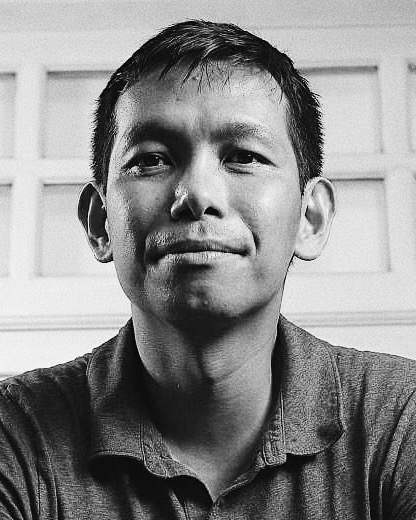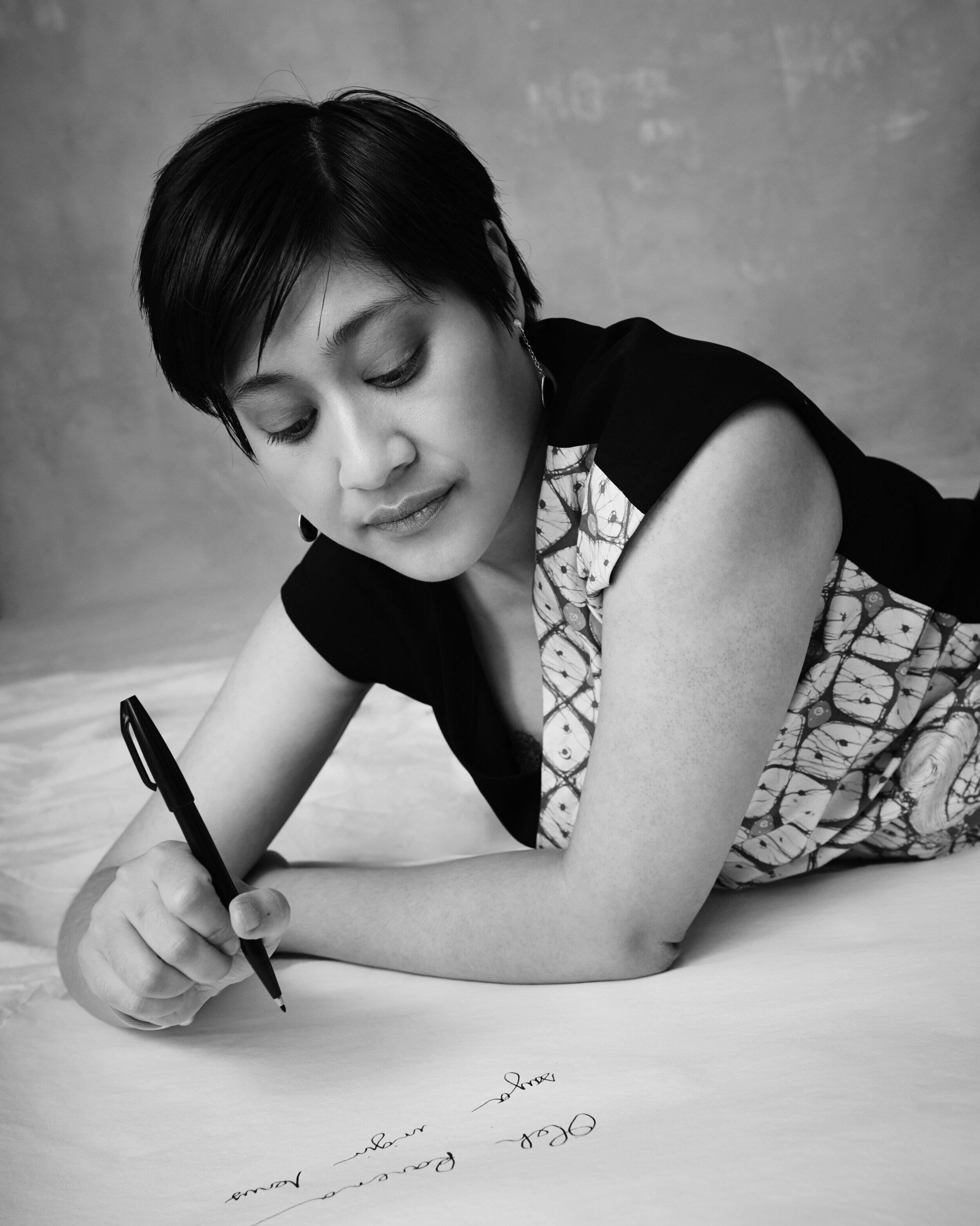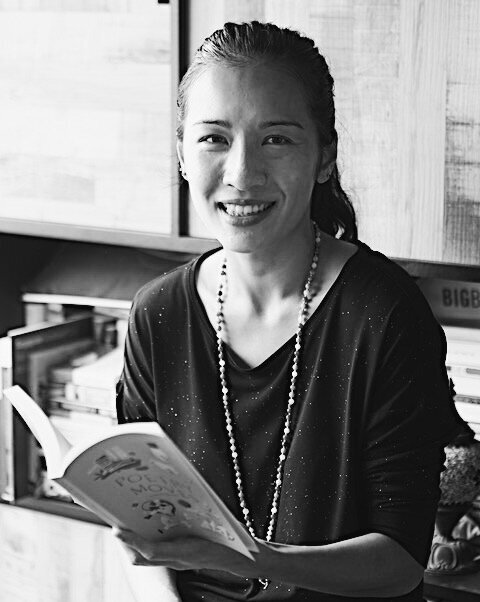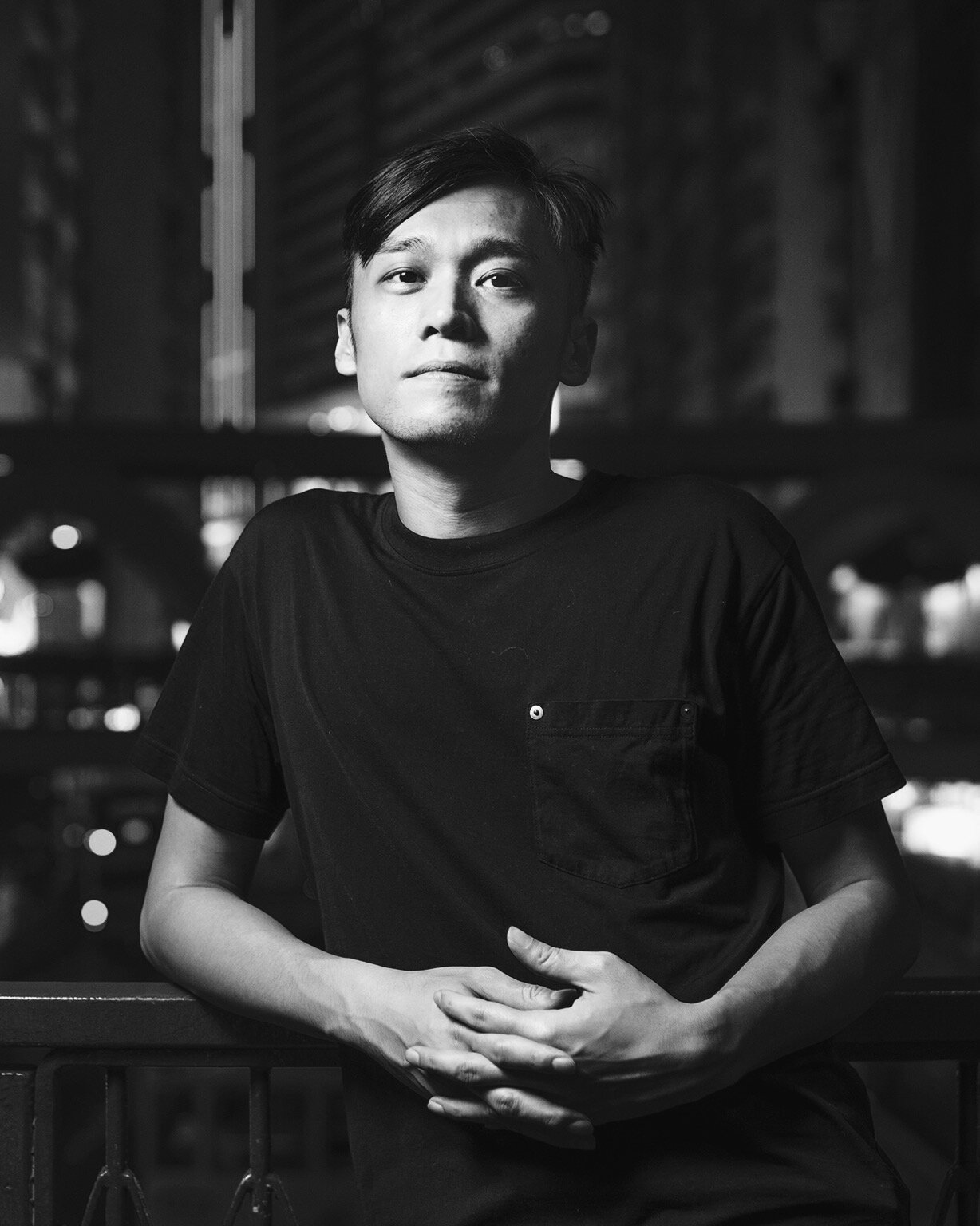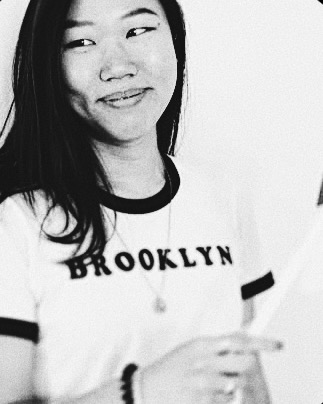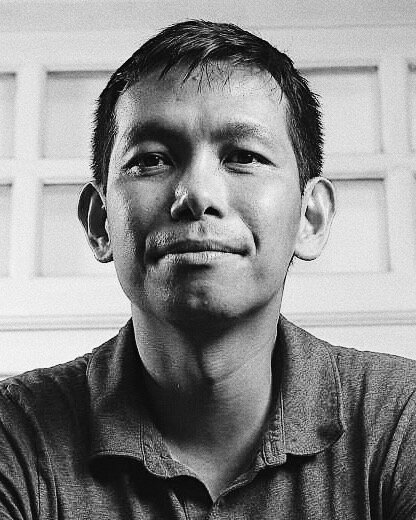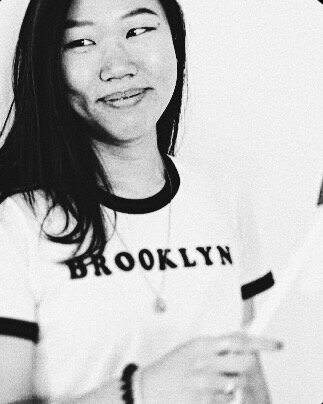The third edition of the Hawker Prize for Southeast Asian Poetry awarded a total of $2500 and three Honourable Mentions to a slate of journals / publications run entirely by Singaporeans.
To highlight their achievements and dedication to publishing quality poetry, Station Manager Klarissa Schmitt interviews three of the winning poets alongside the editors who have nominated them. We’ve also collected the winning poems here.
Singapore Unbound’s nomination of “At the Empress: An Epithalamium” by Mia Ayumi Malhotra — also the First Prize winner in SP Blog’s 5th Singapore Poetry Contest — secured the poet the top prize as well in the 2020 Hawker Prize.
Sing Lit Station's Klarissa Schmitt chats with both Mia and Koh Jee Leong, the founder of Singapore Unbound.
KS Congratulations on winning First Place! I thought “At the Empress, An Epithalamium” was moving — could you tell us more about the inspiration behind this poem in particular, and what made you nominate it for the Hawker Prize? Is there a particular message you’re hoping to send with this poem, and with your journal?
MAM Thank you so much for your kind words — and even more than that, for the tremendous honour of this recognition! I wrote “At the Empress” to commemorate the wedding of two dear friends. The event took place at the Asian Civilisations Museum in Singapore, and guests flew in from all over the world, many of whom I hadn’t seen since high school. Yet we gathered only to scatter — an echo of the life we’d known as Third Culture Kids in Bangkok. There were other sorrows too: grief for lost years, for absent loved ones; in all, it was a remarkable evening, and I wrote my initial notes for the poem on the flight home. Yet when I sat down to write the poem, however, I was overwhelmed by the need to get it right; for the sake of my friends, not to be lazy or sentimental. I also became acutely aware of the perilousness of my position as speaker. Implicated by my ignorance as a Westerner, not to mention by my entanglements as a U.S. national and as the descendent of colonisers, I felt I had no right to a poem that wasn’t mine.
As I continued to write, however, I came to believe that this was the riddle that lay at the heart of the poem. That we are all implicated by our history. That nothing is purely personal, and that one must bear responsibility for the fact that every alliance, especially in a region as complex as the South China Sea, is deeply implicated by histories of conquest and capital. But how to fit that all in a poem? I welcomed the challenge, because, in a way, “At the Empress” is exactly the sort of poem I was brought up to write. To speak as an outsider who knows she is an outsider. A child who feels her non-belonging as a palpable reality, who grows up knowing that her position within the world is a dangerous mix of privilege, vulnerability, and complicity. And then to move through that reality into the question, What, then, do I see? How beauty and connection and renewal endure. How a union can be both politically and historically located and achingly personal, as well, not to mention powerful enough to root even the most transient life in something permanent.
KJL Mia, it’s fascinating to hear you describe the process of composing “At the Empress.” As editor and judge, I read the completed poem from the outside, so to speak, and now I get a glimpse of the inside from you.
Singapore Unbound, the NYC-based literary non-profit that I run, organises an annual Singapore Poetry Contest that is open to non-Singaporean citizens only. The contest requirement is to include the word “Singapore” (or its variants) in the poem submitted. I was so pleased to receive Mia’s poem because it was an outstanding work. It won the First Prize for our 5th Contest. The prize citation for it remains true: “This large-sighted poem sets out to celebrate a marriage but finds itself entangled with the troubling history of the location of the wedding, Singapore within South China Sea. Powered by its questions and revisions (Will we ever remake history? Maybe what I’m trying to say is…), it seeks not just a celebratory song but also a tenable speech. The apt self-recognition that it achieves at the end is that it is a prayer. And how wonderful that the immediate trigger of that realisation is an original perception of the Merlion statue, a perception that transforms an ersatz tourist attraction into a poetic icon for hope amidst the ravages.”
KS How did your journey into editing and writing begin? What gets you excited about literary editorship and writing?
MAM I was a very quiet, interior child, and I spent a lot of time with my mother — drawing, painting, making little books about caterpillars and butterflies. I now recognise those years as early training in visual culture, as well as in the values of beauty and aesthetic pleasure, which my mom no doubt received from her own mother (my grandma used to sit her four children down at the table for formal “art lessons”). Along with that, my upbringing fostered a value for narrative, for words that do work in the world, that enact transformation and bring about clarity. Put all that together, and it’s no wonder I am drawn to poetry as an artistic form: witness, narrative, the pleasure of perception, and transformation. I’m drawn to visual fields that hold hidden worlds of feeling, and exploring those images through poetry is how I understand my life. I studied creative writing both as an undergraduate and as a graduate student, but as I now know, a training in Western literary form and tradition, while valuable, would never be enough for a writer like me. I had to find my people, so to speak, and it wasn’t until I discovered the Asian American literary organisation Kundiman that I had a sense of myself as belonging to a tribe of poets who, today, comprise a powerful groundswell of innovation and witness. I will also say, however, that it was the late Eavan Boland who helped me understand what it means to survive as a poet with two interpretive lenses — two maps, as she puts it: the inheritance of literary tradition and one’s lived experience. I am constantly renegotiating my relationship to poetry, and I believe this shows in the work.
KJL How curious, Eavan Boland is very important to me in my own writing too. I love her book of essays A Journey with Two Maps, which you refer to. The dream of every journal editor is to discover a poet of Mia’s talent and thoughtfulness and to help bring her work to a wider audience. To develop the relationship beyond first publication is even more wonderful. We were very lucky to have Mia review Aria and Trumpet Flourish by Rodrigo Dela Peña, Jr. for Singapore Unbound’s SP Blog. And now we are also in conversation for this interview.
KS Could you walk us through the creative process of selecting, editing and publishing works on your literary journal, as well as your creative writing process? Are there any inspirations or movements in every day life that inspire you or play a part?
MAM My early notes are frantic, impressionistic scribbles: a rush to capture the memory of a moment. Perhaps it is, as Wordsworth says, a spontaneous overflow of powerful feeling, but more often it begins with the perception of absence — an ache. Beauty as evanescence. As the tinge of loss or longing, or as an encounter that causes a shift in psyche. Then, to move deeper into the initial encounter, I go back and scrutinise my notes as though they were written by someone else: highlighting, underlining, looking for the little shocks of recognition one might feel when a poet strikes truth or uncanny depth. Then I type, reread, retype, read… all the while cycling through my various seats of writerly consciousness: the feeling self, the intuitive self, the logical self, trying to maintain balance between them in order to ask: Is this accurate? Emotionally honest? Intellectually lazy? This process, which can last weeks and sometimes years, continues until I sense an intuitive rightness, a kind of harmony, even, in the arrangement of the poem’s elements: sound, movement, image, rhetoric. A “pleasing arrangement,” is how the author of the Sakuteiki, a Heian-era gardening manual, puts it, referring to the setting of stones. I seek a relational beauty, wherein the poem feels right (finished?) when its elements exist in meaningful relation to each other.
KJL What you say — about harmony, gardening, and relational beauty — really resonates with me. When I read submissions, whether for Singapore Unbound’s SP Blog or The Evergreen Review, I’m listening out for the music of thought. Not paraphrasable nor propositional thought but thinking that is constantly on the move, restless, searching, self-questioning, world-questioning. The poem that affects me most is sure of nothing but its own language, and even the language is suspect.
KS It seems like both of you have a lot in common, and I’m really moved by your answers and what inspires the both of you. I’m curious to know if your sense of place (both in society at large, as well as your physical / geographical surroundings) has any effect on your writing? Have both of your experiences traveling to or living in different countries shaped your work in any way?
MAM Absolutely. While I don’t necessarily consider myself a poet of place, I do feel deeply located in family history, which is bound to (and severed from) a litany of cities: Osaka, Kobe, Seattle, Richmond, Rohwer—the incarceration camp where my family was imprisoned during World War II, Vientiane, and Bangkok. In a way, I feel like a composite of all of these geographies and histories, and I suppose that, to a certain extent, this is reflected in my work. Along with my cultural and aesthetic inheritance as a Japanese American, my upbringing as a Third Culture Kid has shaped my way of being in the world, which in turn impacts how and why I write. I’ve said elsewhere that my childhood was “somewhat terrifying but very much alive, and in many ways, [the] vivid lens on the world that it offered me then is what colors my poetic sensibility today… nests of eels writhing in the marketplace; swarms of fire ants seething around a litter of hairless, just-birthed rabbits; the orangey-pink petrol pooled around my cat’s body in the back of the garage.”
KJL Our places overlap, as in a Venn diagram! I did not know how closely. I was born in Singapore, where I lived for 33 years before moving to New York City. Both cities deeply inform not only my writing but also my editing. Singapore Unbound runs a blog, which publishes book reviews, among other features. We have Singaporeans reviewing American books and vice versa. Our imprint Gaudy Boy publishes poetry, fiction, and creative non-fiction by authors of Asian heritage residing anywhere around the world. Living as a Singaporean in the USA, I’m very conscious of the migration histories behind state citizenships. So many of us cannot be confined to just one place; we overflow boundaries. After studying with the wonderful Japanese American poet Kimiko Hahn, I was even more eager to visit Japan, and I did, on an utterly unforgettable trip to Tokyo and Kyoto. From Kimiko, I learned to write in different Japanese literary forms, such as the zuihitsu and haiku. The spareness of Japanese aesthetics is a powerful antidote to the loquaciousness of some strands of American poetry.
KS What kind of poetry would you like to see more of (this can be in relation to anything - theme, form, language, collaborations, etc.)? Have you recently discovered a new poem or book related to this that you could recommend?
MAM I love what Jee said about poetry that captures the “music of thought.” He’s a brilliant editor and poet, and his words ring true for me as well, both as a reader and as an editor for Lantern Review. I’m always on the lookout for writing that creates new ways of inhabiting thought. I like poems that live in the body, that emerge from the intertwining of histories: personal, natural, mythic, political. The book that immediately comes to mind — maybe because it’s the one that I keep finding at the top of the stack on my desk — is Donika Kelly’s Bestiary (Graywolf Press, 2016). The poems are by turns savage, tender, earnest, and sly. Each time I read and reread them, I’m caught short by their violence, by their lyric ingenuity and heart. Also Yanyi’s The Year of Blue Water (Yale University Press, 2019), to whose wisdom I’ve turned to time and again during these uncertain months, where the days blur and reality shifts faster than I can follow. And this isn’t poetry per se, but Yanyi recently launched a creative advice column, The Reader, which nourishes the mind and soul in the best way...
KJL Thanks, Mia, for your kind words. I have been asking myself how poetry can be political and still be poetry. Of course, all poetry is political, even poems about the most intimate personal matters, but I guess I mean how poetry can address larger questions about society, politics, and nature intentionally and still retain the exploratory qualities that I so value. How poetry can be both convincing and uncertain. I recently read the collection The Forgotten Keys, by the Polish poet Tomasz Różycki, translated into English by Mira Rosenthal. Różycki comes from a region called Silesia, which has a real mix of cultures due to shifting state borders. He is a true successor to Zbigniew Herbert, but his experience feels closer to mine because we both belong to the same generation. His poetry, in which the personal is always transpersonal, as Adam Zagajewski puts it, a private response to a historic moment, offers some clues. As does Mia’s poem “At the Empress, An Epithalamium,” one of the many reasons why I admire it so much.
KS Thank you both, for your recommendations and eloquent responses. To round up the interview, what are you currently working on, and is there anything our readers / followers should keep a lookout for?
MAM Thank you, Klarissa! It’s been a pleasure to work with you. And I’ve mentioned this to Jee before, but it’s truly extraordinary how, as he says, our lives overlap. I’ve been aware of his writing and activism for some time now, so it’s a unique gift to be in actual conversation. Before the pandemic, I was accumulating notes toward a hybrid-genre manuscript that explores, among other things, reproductive justice and the history of midwifery (vs. obstetrics) in the United States. The work was beginning to veer into an exploration of form — cultural, gestational, narrative, etc., but then life became impossibly complicated with COVID-related demands on my time and attention, so like many others, I’ve had to become that impossible thing: a full-time parent and poet. Since then, I’ve begun writing what I call “family notebook” poems — compressed narrative works, mostly, rooted in sound, shot through with grief and ghosts... I’m searching, I suppose, for a kind of distilled articulation, some form that feels true to the quality of life in quarantine. In some ways this goes back to Eavan Boland’s notion of the two maps, and how necessary it is for poets to exist in the language of lived experience. I’ve been pickling a lot of vegetables, too — a related endeavor, perhaps? — so that’s something else you can ask me about in the future.
KJL I’m putting the final touches to a forthcoming book, my first work of fiction. Snow at 5 PM is a hybrid work, consisting of 107 haiku, supposedly translated from Japanese into English, with prose commentaries by a fictional critic, Sam Fujimoto-Mayer, who is of Japanese and Jewish heritage. While commenting on the poems, Sam also tells the story of his family, and that of America. It’s very much inspired by Nabokov’s Pale Fire, as well as Basho, Elie Wiesel, John Okada, and other writers. After my most recent poetry collection Connor & Seal: A Harlem Story in 47 Poems, this will be my second stab at responding to this fraught moment in American history. Singapore is in it too, as I am in it. As for editorial work, we’re announcing the winners of the 6th Singapore Poetry Contest on August 3rd, in the run-up to National Day. We had a big increase in entries this year, and some really fine poems. Check out the winners on Singapore Unbound’s SP Blog. This is the contest won by Mia last year, and you already know how good a writer she is, and how thoughtful a thinker. Thanks, Klarissa, for initiating and guiding this conversation. It has been a pleasure talking to you and Mia.
“Flood Season, Jakarta” by Khairani Barokka, nominated by editor Esther Vincent, was awarded Second Place in the 2019 Hawker Prize — a poem taken straight from The Tiger Moth Review’s first issue, released just at the start of 2019.
Sing Lit Station's Klarissa Schmitt corresponds with Khairani and Esther about the poem and the founding of the journal.
KS Congratulations on winning Second Place! I’m interested to find out how your journeys into editing and writing begin? What gets you excited about literary editorship and writing?
KB Thank you for providing the time and space for this conversation, and for the honour of having the poem selected! I first began writing poetry as a toddler, and though I was always writing here and there, it took some time after for me to gain confidence in my writing voice. It was in my mid-twenties when I gained the confidence to dedicate myself to writing and art, to submit more, to write more, and not spend so much time doubting. I think of when I began editing as when I began writing, and also when I began paid work as a translator, around the age of 12 or 13. Translation is editing, and I believe being bilingual has given me a keener eye.
EV The Tiger Moth Review was only realised towards the end of 2018, when I was leaving my full-time teaching position at SOTA and preparing for my graduate studies in 2019. Transitioning from working to studying meant I would have more free time, and so I decided to fill this 'white space' with a meaningful endeavour. Prior to officially founding the journal in October 2018, I had started to write more eco themed poems, and when I began searching for submission avenues, I found that there was no dedicated eco journal in Singapore, but a ton overseas. That's when I thought, why not fill the gap with a journal of my own? So the founding motivations were two-fold: To create a platform where eco themed art and literature in Singapore could intersect, and to constellate work from Singapore within the region and the rest of the world, so that wherever we are from, we see our place as part of a larger ecosystem.
What excites me about editorial work for The Tiger Moth Review is my role in creating a space for important conversations about the environment, a space that does not privilege a single point of view, but that is open to multiple voices and perspectives (especially marginalised, minority and underrepresented voices in society). As an editor, I also enjoy shaping the direction of each issue such that the curation of each issue allows each individual poem, prose, photograph or art to resonate more strongly when read as part of the larger issue. In some ways, this mirrors my belief that we are all part of a larger context and ecosystem, and that together, our voices sing individual notes to a complete song. Working on every issue is different, but it excites me every time I assemble an issue, poem by poem, voice by voice. Also, because a part of my practice is to actively search for specific contributors each issue, it becomes necessary for me to keep up with reading and learning about the international literary scene.
KS I thought “Flood Season, Jakarta” was insightful — could you tell us more about the inspiration behind this poem in particular, and what made you nominate it for the Hawker Prize? Is there a particular message you’re hoping to send with this poem, and with your journal?
KB Thank you so much. I wrote "Flood Season, Jakarta" around the age of 21 and mostly put the drafts aside for a good decade, before I finished it, and it was finally published — it took years for me to realise that just one word in the poem was ableist, and that I needed to replace it! In the intervening decade, I'd come to identify as disabled, and so am really glad for that perspective. Each poem takes its own time to breathe and to come into its own, and this one definitely had an unusual path. I wrote it whilst I was working as a field assistant for UNORC (The UN Office for Recovery Coordination in Aceh and Nias), helping with a lot of flood relief work, and happened to be asked to stay in Jakarta and work for the UN there for a month, when my hometown experienced particularly bad flooding. Floods are a mainstay in Jakarta, and part of why I love the city is the resilience of everyone in it in the face of them, the ways we help each other in the face of government ineptitude, and corrupt business allowing for floods to have a worse impact. Urban poor in Jakarta are impacted the most. I wrote the poem in tribute to Jakartans, and flood tragedy and resiliency.
EV In fact, Khairani Barokka was one of the poets from Issue 1 that I reached out to for submissions. I had learnt about her work on Twitter from Indonesian Writers, and found her poems to resonate with the ethos of the journal. Also, it is notoriously difficult to find Indonesian poets writing in English, and I wanted a more diverse regional representation of voices in our inaugural issue. So, I got in touch with her on Twitter, and invited her to contribute some poems to our inaugural issue. She was gracious and entrusted us with her poem "Flood Season, Jakarta" from Rope (first published in The Poetry Review).
In nominating "Flood Season, Jakarta" for the Hawker Prize, I chose it as it deals with a uniquely regional concept of monsoon rains/floods, something that readers from Southeast Asia are very likely to recognise and identify with or imagine. I also liked how the speaker juxtaposes the force and power of the rains and flood, "rivers and the sea" to the "sinking spectacle" of human-owned material possessions. Amidst a mutually disastrous relationship — a natural disaster wreaking havoc in the city, and humans wreaking havoc on nature — beauty prevails, beginning with the "brown tongue of water" in the opening line, and ending with an image of "chairs made of water hyacinths".
KS Could you walk us through the creative process of selecting, editing and publishing works on your literary journal, as well as your creative writing process? Are there any inspirations or movements in every day life that inspire you or play a part?
KB Writing for me is partly holding onto a phrase that flits into your mind before it goes away, part experiencing artworks, whether audiovisual or literary, and turning that feeling into something that is your own translation of affect. And partly honouring the puzzles and frustrations that go through my head by wrestling with them in written form. Reading poetry continuously, making sure I speak and read in Indonesian as often as I can, so as not to lose touch with it, periodically convincing the self that, as ever, creating is a way to dispel with the demons of being human.
EV Each submission is reviewed firstly for its poetic merits, and then for the perspective it brings to the journal. Since The Tiger Moth Review is an eco themed journal, the work must engage with nature, culture, the environment and/or ecology in some way, though I'm quite flexible about how contributors interpret these themes within their own personal and cultural contexts. I like a good mix of voices, and since we are committed to representing minority, marginalised and underrepresented voices in society, you'll notice too that our contributors are as varied and diverse as possible, hailing from all corners of the world, from Cameroon to Belarus, Ireland to Burma, Singapore to Colombia. Also, it's hard to put into concrete terms but once I read a poem, I know if it belongs in the journal. Something stirs within me, and to continue the musical metaphor, I know it will be a crucial note to the rest of the score.
Once a piece of work is accepted, I work with individual contributors to edit their pieces, and then, after I've a considerable number of accepted work, I begin assembling the issue, arranging them in a way that thoughtfully moves and speaks to each other. That's when the issue begins to come to live, morphing with each new addition. From a reader's perspective, pacing is important too, so I try to open each issue with something lighter, though I think Desmond Kon's poem that opens Issue 4 is an exception! Other than that, it's important for me to vary the reader's reading experience, and so poems are interspersed with art and photography once they reach a point that becomes quite heavy, as a break from words and to focus on image. I like to imagine that each reading experience is an adventure, and I also have said time and again that to read is to inhabit, and so I see each curation as an opportunity to create a new way of inhabiting for my readers.
KS Thank you for sharing your inspirations, and shedding light on your creative processes. The message behind “Flood Season, Jakarta” is beautiful, and it’s wonderful that The Tiger Moth Review champions diversity. Do you have any other poetry recommendations, or any interdisciplinary works to share with our readers?
KB I’d like to recommend Tubuhku Batu, Rumahku Bulan by Komunitas Lakoat.Kujawas, Cruel Fiction by Wendy Trevino, and Dark. Sweet. New and Selected Poems by Linda Hogan. There is no end of great work out there to recommend, but that’s to start with.
EV Let me narrow it down to three recommendations, which may or may not be traditionally viewed as eco poetry, but which adopt an ecopoetic way of thinking about the self’s place and relationship to the world. Joy Harjo and Stephen Strom’s intertextual work Secrets from the Centre of the World, Mary Oliver’s collection of essays which reflect on her poetic craft Upstream and Indigenous Literatures from Micronesia, edited by Evelyn Flores and Emelihter Kihleng, the first anthology of Micronesian literature that recovers and asserts Micronesia identity, which celebrates Oceania as home.
KS I love that The Tiger Moth Review celebrates eco works, and I’m really interested to learn more about Okka’s experience as a field assistant at UNORC. What are some causes that are close to both of your hearts?
KB Disability justice as part of anti-colonial work and ecological justice, and as manifested in arts practice--this isn’t just close to my heart, I think it sums up my whole heart! And this is truly related to everything. As Audre Lorde said, “There is no such thing as a single-issue struggle, because we don’t live single-issue lives”.
EV Aside from nature and the environment, I’m also passionate about literature education beginning at a young age, and for literature to be taught as a compulsory subject to all students in public schools as a way to empower individuals regardless of their social class as well as develop empathy and global consciousness. Education can be a social leveller or divide, and literature as a discipline should be used as a tool to unite and elevate students across cultures and social classes into creative and critical readers, thinkers and writers.
Having taught both the national curriculum and the IB curriculum, I strongly believe that moving towards the IB--where literature is a Group 1 subject, and where emphasis on education is placed on empathy, risk-taking and open mindedness to name a few--is a step towards cultivating a more caring, diverse and inclusive society. In 2013, when I was still with MOE, I brought this up during a tea session with Senior Management, and I distinctly recall the Permanent Secretary of Education Development, Mr Neo Kian Hong respond by telling me that society was not ready for such a change. This cause is still close to my heart, and more than ever, I think we need policy makers who recognise the value of a literature education at the core of any compassionate and reflective citizenry.
KS Thank you both for your recommendations, and for sharing about your passions! Learning from the two of you was an absolute pleasure. To round up the interview, could you share with our readers / followers any hopes, dreams or aspirations you might have for the literary community, or for the communities you’re passionate about? Is there anything we should keep a lookout for from the both of you too?
KB I hope that there will be more intra-Southeast Asian collaborations in the lit community, more indigenous perspectives on environmental literature honoured, and D/deaf and disabled literatures on the environment being honoured as well. I hope our lit world as a whole becomes as accessible as possible, and as respectful of different health realities as possible, especially in light of COVID-19, and its disproportionate effects on writers of the majority world.
Coming up, I have a few book projects in the works, poetry, non-fiction, and hybrid-genre. Including my next full collection, coming in 2021. And various collaborations I’m excited about as part of my job as a researcher in arts archives. My handle is @mailbykite, and I’d love to hear from people! Thank you once again to the Hawker Prize and to Esther!
EV I hope that the Singapore literary community will continue to keep their feet on the ground and their heads in the sky, to use a Basho analogy. I also hope that more writers will address the topic of climate change in their poems, novels, essays, etc. because that’s an important conversation for literature to engage in.
I also hope that literature education will reflect this urgency, in the form of a nationwide curriculum that includes nature / the environment / climate change as a compulsory module in the course of study, and that takes a multi-disciplinary approach to learning.
Apart from The Tiger Moth Review, I’m currently working on my debut poetry collection, Red Earth, so I’m keeping my fingers crossed that my manuscript will find its home in the right time and place. Also, I’ve begun writing a series of personal essays exploring themes of memory, home, relationships, place, and change, and a truncated version of one such essay is slated for publication in JOURNAL towards the end of August.
OF ZOOS’ nomination of Nicholas Wong’s “Golden” secured the poet third place in the 2020 Hawker Prize — a poem with author’s notes so winsome, we had to include all of them on our site as well.
Sing Lit Station's Klarissa Schmitt chats with Nicholas and Kimberly Lim, one of the two co-editors behind OF ZOOS, to learn more about the poem.
KS Congratulations, Nicholas, on winning Third Place! I thought “Golden” was fascinating, and the form was unique — could you tell us more about the inspiration behind this poem in particular, and what made you nominate it for the Hawker Prize? And to Kim — is there a particular message you’re hoping to send with this poem, and with your journal, OF ZOOS?
NW I remember before I wrote this poem, I was translating some Chinese poems by the Taiwanese poet and essayist Sun Tsz-ping. His collection <善遞饅頭> (Sentimental) has a long poem divided into 100+ episodes. I guess I was influenced by the fragmented form and tonal shifts in what I was translating. Also, it was written at a time when the Anti-Extradition Bill Movement and the government’s authoritarian suppression escalated in Hong Kong. I started being obsessed with reading online forums that allowed the speedy dissemination of protest information. The way Chinese and Cantonese is handled is very reinvigorating in those forum threads. New witty terms that are politically loaded are invented almost every day. Since OF ZOOS was calling for submissions about “codes” back then, I thought it would be interesting to write about the protests with unapologetic code-mixing. (God, protests are the second most difficult thing to write about.)
Yes, it’s about the protests. Yes, there’s linguistic layering. But it’s really important to notice the work also offers a certain queering to both.
KL Last year, our theme was “code” — the language of coding, the coding of language, and how procedural poetics can impart or obscure meaning. When we read “Golden,” we knew immediately that it answered the theme — and more — on multiple levels. Exactly the kind of code we like! On one hand, it had an urgent politics; but on the other, just as Nicholas mentioned, it offered something more to the reader-as-code-breaker, such as a queer frame for interpretation and reinterpretation. I share the same fascination with daily evolving lingo and internetspeak, born out of the necessity for survival but also engaged with the necessity for humour and playful irreverence. There is a subversive power in upsetting the rules of language to claim it as the speaker’s own. After all, that’s what language should do: serve us, not the other way round. And I think, if OF ZOOS had any sort of unwritten or unspoken motto, it would be that!
KS How did your journeys into editing and writing begin? What gets you excited about literary editorship and writing?
NW My writing journey started with being a MFA student more than a decade ago. What intrigued me about literary writing (poetry, in my case) is the putting together of concepts and feelings into a piece that makes readers feel its weight. But editing my own work is NOT fun.
KL Ha! It’s fascinating, because I enjoy editing much more than writing (whatever little I did of it; I majored in poetry writing as an undergraduate). Though I do love writing, I think somewhere along the lines I decided I preferred shepherding and editing other people’s writing more than my own. Editing is not always glamorous, but whenever I come across work that does or says something different, that challenges what I’m familiar with, I do get excited because that means I’m no longer evaluating it according to the old rules I know but I have to invent new schematics for it. Perhaps sometimes I get too excited about difference for difference’s sake (and that’s where the discerning voice of the journal’s other coeditor comes in, haha). But is that so bad? Embrace now, talk later!
KS Could you walk us through the creative process of selecting, editing and publishing works on your literary journal, as well as your creative writing process? Are there any inspirations or movements in every day life that inspire you or play a part?
NW My creative writing process starts with not writing, but reading. It’s interesting to see how I can relate this to my answer to the first question. I haven’t read that many books last year because my headspace kept shrinking since the Movement started. Instead, I spent lots of time reading online forum threads. I guess what I read somehow got translated into what I wrote in “Golden.”
KL I resonate with Nicholas’ answer. What we read/eat is what we put out; I think that’s true. We exist in the world, and try as some might, it’s difficult to completely divorce our poetry from it. It’s interesting to read “Golden” now in light of the new security law and consider how Nicholas’ sincere but playful poetics take on a new, sobering meaning. Going on a semi-tangent, it makes me think of the recent election-period uses of POFMA against opposition members, a very coded act in itself. The “code” issue is now over, and we’ve moved on to the timely “social distancing” issue this year, but I feel these are all related questions and issues that we are still grappling with.
KS That’s really interesting, and I fully agree with the both of you — what we read is so important! Do you have any particular books or works you’d like to recommend?
NW Victoria Chang’s OBIT, Kim Kyung Ju’s Whale and Vapor, and Kathryn Nuerberger’s Rue. These are the titles I enjoyed reading recently.
KL I’m sorry to say I haven’t had a chance to read much even during this period — I read (and edit) for a living, and any free time I have, I try to do something else. A moving and sobering thing I last watched was Raoul Peck’s I An Not Your Negro (now on Netflix), which is a documentary film based on James Baldwin’s unpublished manuscript and memoir Remember This House, an assortment of notes, letters, and thoughts about race relations in America organized around the deaths of three prominent civil rights leaders.
KS I’m looking forward to the timely social distancing issue this year! Speaking of which, has COVID-19 and the effects of it (social distancing, heightened regulations and restrictions etc.), or any changes to the environment around you (political, social, geographical etc.) impacted your creativity or work in any way? If so, how have you tried to overcome it?
NW I admire the poets who can keep writing about the pandemic. In my case, focus has been the main issue. To be honest, I am more frequently awed by the description on wet wipes’ packaging than poems these days.
KL Ha! Even though our issue is about social distancing, personally, it’s doubly hard for me to be creative or productive now. It’s been an unprecedented whirlwind of emotions and expectations, and I’m in an anxiously reflective and surreal headspace. If you can create during this time, fantastic! If you can’t, that makes total sense. The world isn’t normal right now, and we still need time to adjust and heal. (In America, at least, which is where I am based.)
KS What are some of your dreams and goals beyond this? Is there anything our readers / followers should keep a lookout for?
NW If dreams have nothing to do with coping with reality, I’d say I very much want to leave the education field, move to Taiwan and simply work in a cafe that helps with adoption of stray dogs and cats. On the very contrary, my goal is to keep writing without self-censorship. Literary readers from Southeast Asia could pay more attention to translation of Hong Kong poetry and fiction.
KL Nothing really comes to mind. With things so volatile and uncertain, it’s hard to plan beyond a few months. I think that’s why this has been a particularly destabilising time — it feels like we’re riding an unpredictable wave. We’re lucky that OF ZOOS exists online, entirely volunteer-run, and we’re not negatively affected in ways that other art collectives and organisations that depend on in-person engagement are. Keep engaging with these institutions and try your very best to support them. We’re all in this together.


